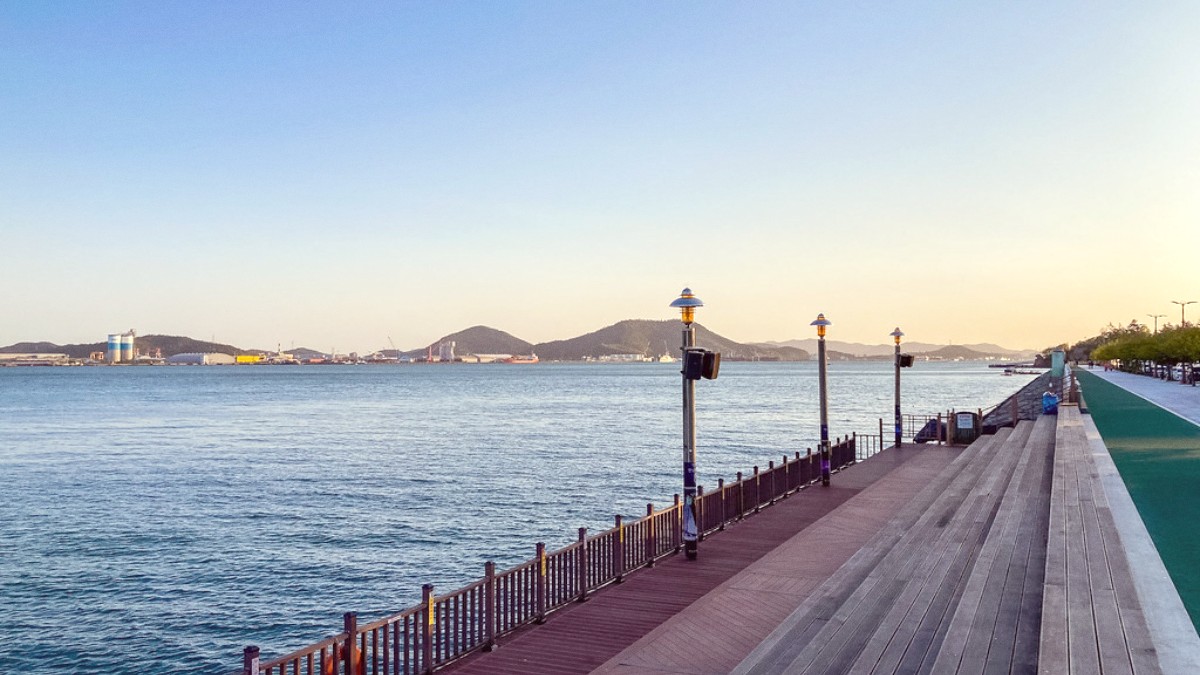
Jeollanam Do, South Korea
As a major port city, Mokpo's cuisine has strong influences from the fresh seafood of the Yellow Sea. It is in Jeollanam-do province, considered Korea's culinary heartland.
This region is known for rich, flavorful cuisine, using fermented ingredients and a wide array of side dishes (Banchan). Flavors are a balance of sweet, salty, spicy, and savory. Fresh, seasonal ingredients and traditional preparation are key.
Jeollanam-do cuisine has wholesome, delicious flavors, with generous Banchan portions. The region's fertile land and coastline contribute to ingredient quality. Mokpo specifically specializes in seafood.
Most Korean meals are family-style. Main dishes are for sharing, with many Banchan. You use chopsticks and a spoon. Waiting for the eldest person to begin eating shows respect.
Lunch is typically 12:00 PM - 1:30 PM. Dinner usually begins after 6:00 PM and is often a social affair. Breakfast can be light or a full Korean meal.
Finely chopped live octopus, often mixed with raw beef (Yukhoe), seasoned with sesame oil. Find it at specialized seafood restaurants near Mokpo Port.
Unique texture and fresh taste.
Fermented skate (Hong-eo) with aged kimchi and boiled pork belly. Known for its pungent, ammonia-like aroma and acquired taste. A true regional delicacy.
Seek specialized Hong-eo restaurants.
Braised hairtail fish in a spicy, savory sauce with radish. A popular, comforting seafood stew, widely available.
Flavorful and less adventurous.
Fish-shaped pastry with sweet red bean paste or cream. A popular street snack.
Sweet, chewy pancake filled with brown sugar syrup, cinnamon, and nuts. Comforting in colder weather.
Mokpo has limited fine dining. Some upscale hotels may have restaurants for a discerning palate.
Abundant traditional Korean cuisine, focusing on seafood. Comfortable settings and good service.
Many affordable eateries in Old Downtown. Lively experiences at markets.
International options are limited. You find some Western, Chinese, or Japanese restaurants.
Focus remains on Korean food. Peace Square may have some basic international choices.
Mokpo's culinary scene is strongly rooted in local Korean flavors, especially seafood.
Consider exploring the diverse local dishes rather than international fare.
Finding strictly vegetarian or vegan options can be challenging but is growing.
Very challenging due to soy sauce and wheat flour in many dishes.
Extremely limited to non-existent options in Mokpo.
Carry allergen cards translated into Korean.
Gogi a meogeoyo (고기 안 먹어요 - I don't eat meat)
Gyeran a meogeoyo (계란 안 먹어요 - I don't eat egg)
Uyu a meogeoyo (우유 안 먹어요 - I don't eat dairy)
Research restaurants in advance for specific dietary needs. Apps like HappyCow might list options.
Mokpo hosts various festivals throughout the year, some of which may feature local food, especially seafood.
A standout experience in Mokpo is dining at the Mokpo Seafood Market. Here, you choose your fresh seafood from a vendor.
Organized public workshops for tourists are limited in Mokpo. More common in larger cities like Seoul or Jeonju.
Direct tourist visits to farms or food producers are less common in Mokpo itself.
Supporting local businesses, markets, and family-run guesthouses has a more authentic experience.
Mokpo does not typically have specific short-term language learning programs for tourists.
Tipping is generally not customary in South Korea, including Mokpo.
Do not feel obligated to leave a tip.
The availability of fresh seafood changes seasonally. Certain types of fish or shellfish are best in specific seasons.
Check local markets for the freshest seasonal catches. Vendors can guide you on what is best.
Mokpo's festivals, especially the Port Festival, often feature special local foods for an unique taste experience.
Mokpo's culinary identity is deeply connected to its port city status and Jeollanam-do's rich food heritage.